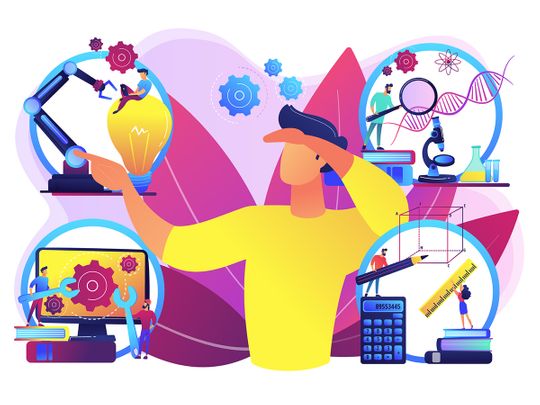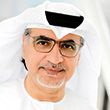Education faces its greatest upheaval in decades, and this is not hyperbole. The coronavirus pandemic has the potential to radically reshape our world and the traditional, established model of in-person learning may never be the same again. But creating a framework that helps students and educators stay relevant in a rapidly changing environment presents an opportunity to take concrete action now that will have a huge impact tomorrow. One such area is the development of future-proof skills.
The speed at which the UAE education sector adopted distance learning by leveraging digital infrastructure to ensure academic continuity has been well documented. It demonstrated the resilience and readiness of the country to respond effectively to a disruption few of us expected. Schools now have the option to choose a model that best suits their needs, and this includes maintaining distance learning. As a result, there may be greater need to ensure students are digitally literate and have the right skill sets to stay relevant in the post-Covid world.
The speed at which the UAE education sector adopted distance learning by leveraging digital infrastructure to ensure academic continuity has been well documented.
Interestingly, regional students are confident that the skills they learn at university will help them compete for a job globally. According to a joint-research effort carried out in collaboration between Dubai International Academic City, KPMG and The Talent Enterprise — a human resources consultancy combining psychometric assessments with artificial intelligence and data science — nearly three-quarters of students believe they can compete for work anywhere in the world.
Conducted between 2017-2020, the study represents the views of more than 128,000 young people from the UAE, Saudi Arabia and the wider region. It aims to provide universities and employers with actionable data and insight on what matters most to young people today. With youth largely confident in their soft and hard skills, one of the key recommendations to come out of the report is this: universities should increase the provision of career guidance, with seven in 10 participants seeking more professional support.
Promoting STEM careers
When it comes to rethinking their curriculum to stay relevant, student interests’ point to areas universities could consider. More than a fifth of young people are interested in pursuing careers across science, engineering, technology, mathematics, robotics and artificial intelligence. It is recommended that educators and employers establish programmes and initiatives to encourage STEM careers to meet the UAE’s vision for a knowledge-based economy, especially as the nation sets its sights on future missions to space.
Universities could also look more closely at their post-graduate programmes too. The directive of His Highness Shaikh Mohammad Bin Rashid Al Maktoum, Vice President and Prime Minister of the UAE and Ruler of Dubai, to issue 10-year golden visas to PhD holders, doctors, engineers, students pursuing artificial intelligence, big data or epidemiology degrees, graduates from accredited universities that receive a grade point average of 3.8 or above, as well as top high school graduates is a game-changer. It will help the UAE attract and retain the best and brightest minds, supporting greater innovation, creativity and research across the country. As universities look at new ways to drive engagement, creating programmes and initiatives that encourage postgraduate and PhD study could be potentially advantageous.
Moving forward, what’s important is to collaborate and support one another. Despite these challenging times, teaching must continue uninterrupted. As part of our commitment to support local communities and ensure equitable access to knowledge, we recently joined forces with the Ministry of Education and Dubai Cares to help donate laptops and iPads to children from low-income families. By doing this, the initiative hopes to help more than 40,000 UAE students get the electronic devices they need to continue distance learning.
As academia continues to navigate the education model of the future, there is a clear and immediate need for all stakeholders to come together to identify gaps in the current system and take into consideration the voice of youth. We need to create a framework that helps students, educators and employers in the UAE to stay relevant in a world that remains in a state of flux.
The writer is Managing Director, Dubai International Academic City


